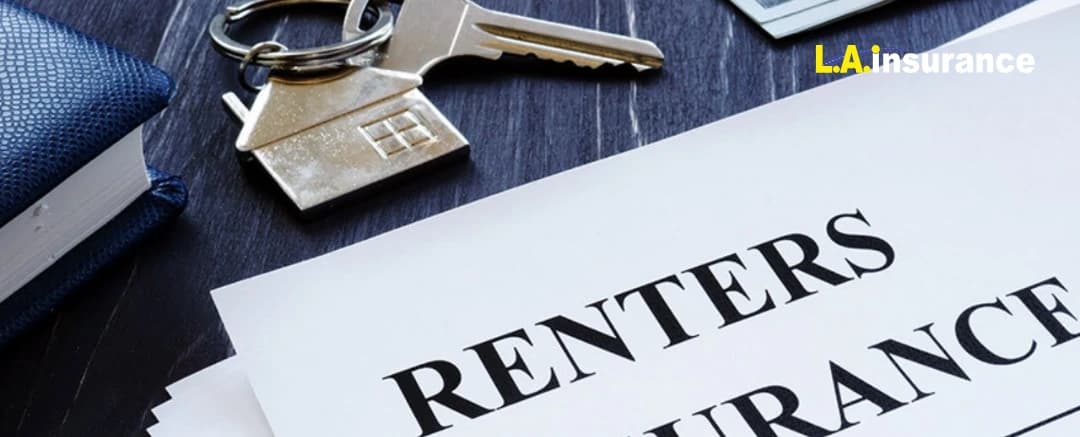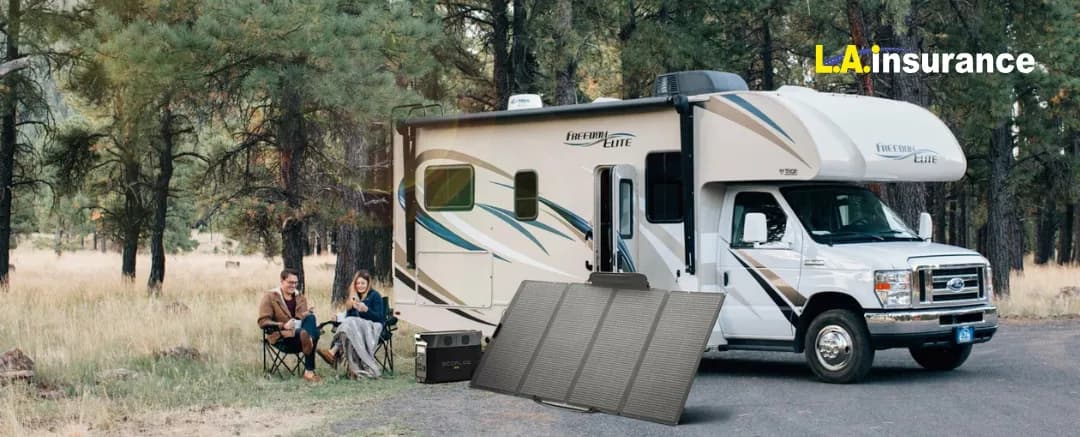
July 1, 2025
Auto Insurance
Does Liability Insurance Cover Hitting a Deer?
Have you ever wondered how often deer accidents occur? Every year, approximately 2.1 million deer-vehicle collisions take place in the U.S., causing over $10 billion in economic damages, according to a 2022 study.
As a result, auto insurance claims for deer-related accidents have risen significantly. In fact, between July 2023 and June 2024, 1.8 million deer collision claims were filed—a number nearly identical to the previous year's 1.9 million, according to the Insurance Information Institute (III).
Most deer crashes lead to property damage, medical expenses, and increased car insurance rates. The majority of these accidents occur between dusk and dawn, especially from October to December when deer are more active due to hunting season and mating patterns. Drivers in states like Pennsylvania, Michigan, and Wisconsin face an even higher risk due to a high number of deer-vehicle accidents.
Now the common concern among drivers is whether liability insurance covers hitting a deer. This question arises particularly because many drivers only carry minimum liability auto insurance. A more frequent query, however, is whether car insurance in general covers hitting a deer. What if you swerve to avoid a deer and collide with something else—will your insurance company classify it as an at-fault accident? And how do comprehensive and collision insurance policies factor into these situations? Keep reading to learn more everything you need to know about liability auto insurance and deer-related accidents.
Does Liability Insurance Cover Hitting a Deer: Quick Answer
The shortest answer is no. Liability insurance only applies to other drivers if you’re responsible for an accident. It does not cover collisions with deer or other animals. This means that if your car sustains property damage, or if you incur medical bills, legal fees, or require compensation for pain and suffering due to a deer collision, liability insurance won’t provide any reimbursement.
Liability insurance generally covers the following for the other party if you’re at fault:
- Bodily injury (e.g., medical bills, pain and suffering compensation)
- Property damage (e.g., vehicle repair costs)
- Legal fees, such as attorney or court costs
If you only carry liability insurance, you’ll have to pay out of pocket for repairs or damages from all animal-related collisions, including those involving deer.
Learn more about liability auto insurance to understand it better. Read our article on what is liability auto insurance.
What Types of Insurance Cover Hitting a Deer?
If you hit a deer with your car, or if a deer suddenly appears on the road and damages your vehicle, your insurance coverage determines whether your auto insurance will pay for the damage. To receive compensation for any collision involving animals—whether it’s deer, rodents, or even dogs—you need comprehensive car insurance.
Interestingly, collision insurance is less useful than comprehensive coverage when it comes to accidents with deer. If you have full coverage auto insurance, you might also wonder whether it will cover such incidents. Let’s discuss this in detail to clarify how auto insurance handles deer-related accidents.
Learn More: What Is the Difference Between Collision and Comprehensive Insurance?
Does Comprehensive Insurance Cover Hitting a Deer?
Yes, if you have comprehensive insurance, your provider will cover damage caused by a deer accident. Here’s what comprehensive auto insurance typically includes:
- Auto theft
- Vandalism
- Wildfires
- Falling objects (e.g., trees or branches)
- Animal damage (e.g., collisions with deer)
This means that if a deer runs into your car or you hit one on the highway, your comprehensive policy can help cover repair costs. However, keep in mind that you'll need to pay your comprehensive deductible first.
Learn more about Is Hitting a Deer Comprehensive or Collision?
Does Collision Insurance Cover Hitting a Deer?
The short answer is no— collision insurance doesn’t cover damage from hitting a deer. This type of insurance only applies when your car collides with another vehicle, a tree, or another object. It doesn’t cover medical expenses or any other costs beyond damage to your vehicle.
Collision insurance typically covers the following:
- Collisions with other vehicles
- Collisions with stationary objects (e.g., trees, fences, or curbs)
- Single-car accidents such as rollovers
While collision insurance doesn’t directly cover damages from deer collisions, it can still help if you swerve to avoid a deer and crash into something else.
Learn more about what is collision insurance.
Does Full Coverage Car Insurance Hitting a Deer?
Yes, but only if your full coverage auto insurance includes comprehensive insurance. While full coverage auto insurance isn’t a formal policy, it often combines liability, collision, and comprehensive insurance, offered by most insurers. If comprehensive insurance is part of your full coverage plan, it will cover damage caused by a deer-vehicle collision.
Please note that full coverage works best when it includes both collision and comprehensive policies, as together they provide extensive protection for your vehicle against various risks.
At this stage, if you need to make sure that you’re covered for any animal-related collisions including deer, we’d love to offer you our affordable full coverage auto insurance policy. Whether you want to reach out online, via text, or through a call, the expert insurance agents from L.A. Insurance are always here to help you out. Get reliable coverage today from your favorite affordable insurance agency. Or visit our regional offices across the states including Michigan, Colorado, Texas, Florida, Nevada, Georgia, and Arizona.
Explore more about 'What Is Full Coverage Car Insurance' to deepen your understanding.
Does My Insurance Cover Injuries from a Deer Accident?
59,000 human injuries and 440 human deaths occur due to deer-related crashes (Via 2022 study). If you’re injured in a deer accident, whether your insurance policy covers medical expenses depends on the types of car insurance coverage you have. Liability insurance won’t cover your injuries from hitting a deer because it only applies to bodily injury or property damage you cause to others. To receive financial protection for your medical bills, you’ll need optional coverage like personal injury protection (PIP) or medical payment coverage (MedPay).
According to the Insurance Information Institute, PIP coverage helps cover medical bills, lost wages, and rehabilitation costs after an accident, regardless of fault. On the other hand, MedPay strictly covers medical expenses but does not extend to lost wages or other costs. If you only have liability insurance, you’ll need to rely on your health insurance to cover injuries from deer accidents.
However, if the accident involves another vehicle because you swerved to avoid a deer, the situation changes. In this case, your collision insurance may cover vehicle damage, but your injury costs would still depend on PIP, MedPay, or health insurance.
How Does Hitting a Deer Affect Insurance?
Hitting a deer can affect your insurance coverage in various ways, depending on your auto insurance policy and provider. If you have comprehensive insurance, your insurer will likely cover the damage to your vehicle after you pay the deductible. However, with only liability insurance, you’ll be responsible for handling repairs out of pocket.
If you swerve to avoid a deer and end up hitting another vehicle, a tree, or a guardrail, it’s typically classified as an at-fault accident. In such cases, your collision insurance may cover the repairs, but your car insurance rates could increase. On the other hand, insurance companies often consider deer-related accidents as not-at-fault, though this doesn’t necessarily mean your rates won’t go up.
So, Will Hitting a Deer Raise Your Insurance Premium?
Whether your insurance rates will increase after a comprehensive claim, such as a deer-vehicle collision, depends on your insurer and state laws. Many insurance companies don’t raise rates for comprehensive claims, as deer accidents are often seen as unavoidable.
However, filing multiple comprehensive claims within a short period could still impact your premiums. According to an insurance quote comparison site, the average comprehensive claim can raise your auto insurance rate by about $98 annually, or roughly $8 per month.
If your insurer raises your rates significantly after an animal-related collision without providing a proper explanation, it might be worth considering a switch to a different insurance company.
On the other hand, if you file a collision claim after crashing while trying to avoid a deer, your insurer may treat it as a chargeable accident. This could result in a higher premium. Our research shows that, on average, collision insurance claims can increase your premium by 42%. If it’s deemed an at-fault accident, the increase could climb to as much as 92%. Check out our article on how much car insurance rates increase after an accident for a detailed overview.
Finally, if your insurer offers accident forgiveness, it might prevent your rates from rising after your first claim. To be sure, review your auto insurance policy or contact your insurance company before finding yourself on the roadside with a damaged vehicle.
What to Do If You Hit a Deer?
Picture yourself driving down a dark highway at dusk, your headlights slicing through the misty air. Out of nowhere, a deer runs into the road. You slam on the brakes, but it's too late. Your vehicle collides with the animal. Your heart races, your car is damaged, and you're left feeling shaken and uncertain about what to do next.
If you ever find yourself in this situation, follow these steps:
- Move to the Side of the Road: If possible, pull over safely and turn on your hazard lights to warn other drivers.
- Stay Inside Your Vehicle: Injured deer can be unpredictable and potentially dangerous. So, it's safer to remain in your car.
- Call the Police: A police report is crucial for filing an insurance claim. In some states, such as Georgia, you must report the incident if the deer is still on the road. Regardless of legal requirements, it's always ethical to inform authorities if your vehicle is damaged, or if you or the deer is injured.
- Document the Damage: If it's safe, take photos of your car, the road, and the accident scene to support your insurance claim.
- Contact Your Insurance Company: If you have comprehensive insurance, your insurance policy may cover damage to your vehicle after you pay the deductible.
- Check Your Car Before Driving: Look for leaking fluids, broken lights, or a loose hood before continuing your journey.
Preventing Deer-Related Accidents
Although deer were almost on the verge of extinction due to hunting, today there are 36 million deer in the United States, according to World Population Review. Unfortunately, that number is now a threat to drivers since around one and a half million deer-vehicle crashes occur annually. Anyway, whatever the statistics are, the things we can do for our best interest is trying to prevent any unfortunate incident involving a car driver and a deer.
The best way to handle a deer accident is to avoid one in the first place. Here’s how:
- Be Extra Cautious at Dawn and Dusk: Most deer accidents happen during these times.
- Watch Your Speed: If you’re driving in high-risk areas, slow down. Watch for deer crossing signs, especially, in wooded or rural areas. Collisions with deer are most common during the breeding season, which usually runs from mid-October to late November. This trend is especially notable in the Midwest and along the East Coast.
- Slow Down If You See a Deer: Remember a deer doesn’t roam alone. If you see a deer on the road, keep yourself alert and slow down a bit.
- Use High Beams When Possible: They can help you spot wildlife near the road.
- Avoid Swerving: If a deer runs into the road, brake firmly and stay in your lane. Swerving could lead to a more serious accident.
Honk Your Horn and Use Rear-Facing LED Bars: A long blast of the horn can help scare deer away. Also, using rear-facing LED bars in low-light conditions increases visibility, making it easier for deer to see your vehicle. This preventative measure, recommended by the National Safety Council (NSC), can help avoid deer-vehicle collisions.
In short, deer collisions are common, especially during hunting season or mating months. Always staying alert and prepared can significantly reduce your risk of an unexpected claim and costly vehicle damage.
Does Car Insurance Cover Hitting a Deer: The Bottom Line
To summarize, car insurance will cover hitting a deer if you have comprehensive coverage. However, if you're wondering whether liability insurance covers a deer collision, the answer is a definite no—liability insurance does not extend to animal-related accidents.
If a deer suddenly runs in front of your vehicle and you swerve to avoid it, causing a collision with another object and damaging your car, the damages would fall under your collision insurance. In this scenario, your auto insurance rates may increase.
Regardless of the potential impact on your premiums, we recommend maintaining full coverage insurance if you frequently drive in areas with high deer populations. It’s a precaution that can save you from significant expenses in the event of an accident.
Learn more about auto insurance coverage. Read similar articles if it’s relevant to you:
- What to Do If You Hit a Deer?
- Does liability insurance cover theft?
- Does car insurance cover hail damage?
- Does insurance cover auto repairs?
- Will Insurance Pay for Rental Car During Repairs?
- Does car insurance cover car battery?
- Will my insurance cover car wash damage?
Frequently Asked Questions (FAQs)
Is hitting a deer with your car considered an act of God?
No, hitting a deer is not legally classified as an “act of God”. Insurance companies categorize deer accidents under comprehensive insurance, which covers damage caused by wildlife and unpredictable events like storms or natural disasters.
Is hitting a deer an at-fault accident?
The answer is no. Deer accidents are usually considered not at fault by car insurance companies. However, if you swerve to avoid a deer and crash into another vehicle property, or object, your collision insurance may cover it, but you could be found at fault.
Do I need a police report to file an insurance claim for hitting a deer?
Not always, but it’s recommended. A police report validates your insurance claim and processes that the accident was caused by a deer. Some insurance companies require it, while others don’t. Even if you didn’t file a police report, we’d recommend taking photos of damage and accident scenes to support your claim. If you have anything else to know, check your insurance policy or contact them directly.
What part of insurance covers hitting a deer?
Comprehensive insurance covers damage from hitting a deer. If you only have liability insurance, your vehicle repairs won’t be covered. If you swerve and hit another car or object, collision insurance may cover the damage.
Will it be illegal If I hit a deer and drive off?
It depends on your state laws. In some states, reporting a deer accident is mandatory, particularly if there’s property damage or the deer is obstructing traffic. For example, in Florida, you’re required to report the incident if it involves injury, death, or property damage exceeding $500. Vermont State wants the driver to report the accident if it has injured or killed large animals such as deer or bear. Even in states where reporting is not legally required, filing a police report can still be beneficial for supporting your insurance claim.
Does hitting a deer go on your driving record?
No. Hitting a deer doesn’t usually affect your driving record. However, if you swerve to avoid a deer and crash into another vehicle or property that could be classified as an at-fault accident and appear on your record.
Can hitting a deer total my car?
Yes, a deer accident can result in your vehicle being totaled, particularly if the collision is severe. Factors such as speed, the size of your vehicle, and the size of the deer all play a role in the extent of the damage. If the repair costs exceed the vehicle’s market value, your insurance company may classify it as a total loss.
Can you go to jail for hitting a deer?
No, hitting a deer is not a criminal offense. However, failing to report a deer accident in states where it is required may lead to fines. Also, if you cause another accident while attempting to protect the deer, you could face legal consequences.
What to do if a deer runs in front of your Car?
Brake firmly, stay in your lane, and avoid swerving. If possible, honk your horn to scare the deer away. If a collision is inevitable, maintain control and prepare for impact. Always check for deer crossing signs in high-risk areas.
How much is deductible if you hit a deer?
Your deductible depends on your comprehensive coverage. Most deductibles range from $100 to $2000. If repairs cost $3000 and your deductible is $500, your insurance company pays $2,500, and you cover the rest.
When do deer collisions occur the most?
According to the Insurance Information Institute (III), deer accidents peak between October and December, especially at dusk and dawn. During hunting season and mating periods, deer are more active which increases the risk of auto accidents.
Tag :
Auto insurance








